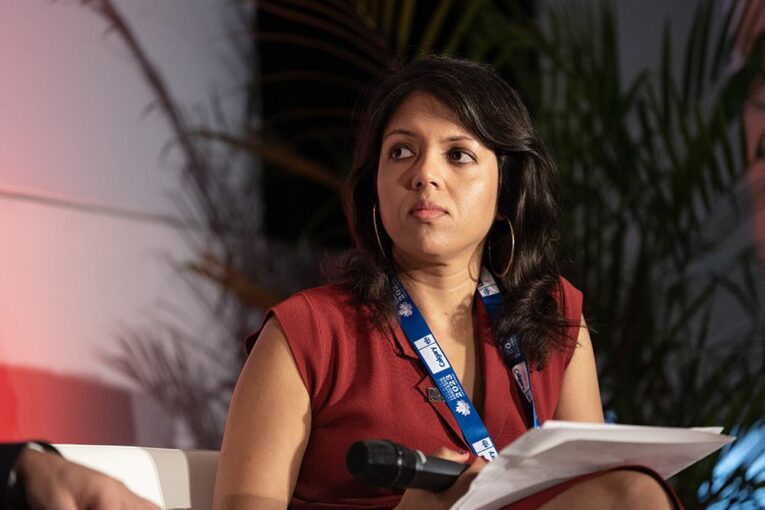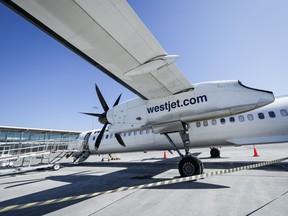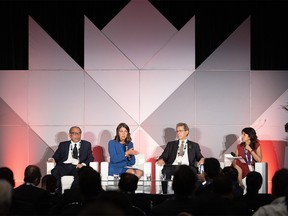
Technology and its vital role in the energy transition took centre stage at the World Petroleum Congress on Tuesday, but some big questions loomed over it.
How much will the transition cost — and who is going to pay for it?
It’s no insignificant matter, as energy prices have taken off in much of the world. Oil prices have surged past US$90 a barrel, electricity costs are up and the price tag to decarbonize key sectors is unclear.
Amrita Sen, research director of London-based consultancy Energy Aspects, put it succinctly during one panel on the second day of the summit.
“Whenever I hear about energy transition, particularly in the West, everybody’s pro it, as long as we don’t have to pay for it,” Sen said.
“The true cost of transition, I think the reality is it’s not going to be cheap, so why are we not talking about who’s going to pay for it?
“How are we going to fund it?”
It’s a good question, without a lot of simple answers.
The head of the International Energy Agency (IEA) said last week that demand for oil, natural gas and coal will peak this decade, but those projected declines in consumption are “nowhere near steep enough” to limit global warming to 1.5 degrees Celsius.
The role of technology in the drive to reduce greenhouse gas emissions has been a focus of this week’s World Petroleum Congress, which has attracted some of the key leaders in the global oil and gas sector to Calgary.
Carbon capture and storage, direct air capture, hydrogen and biofuels are attracting increased industry attention and investment.
Related Stories
-

Less wealthy nations will struggle to reach global 2050 net-zero target, WPC panel says
-

Decarbonizing aviation sector without government support will cause steep increases to ticket prices: WestJet CEO
-

Varcoe: Global oil leaders warn of clash between rising oil demand and ‘wishful thinking’ on energy transition
-

‘Tone deaf’: Smith, provincial politicians blast federal energy minister’s remarks at WPC
The CEO of Madrid-based Repsol spoke Tuesday about the company’s plans to produce renewable fuels, made using organic waste and renewable raw materials.
“This year, we’re going to invest 37 per cent of total capex in low-carbon technologies — that is quite a huge figure for an oil and gas company,” Respol CEO Josu Jon Imaz said.
“We need regulatory support, we need political support, we need a social support, because we are part of the solution.”
However, developing the technology will be expensive.
One example can be seen in the aviation sector.
Air travel was responsible for about two per cent of global CO2 emissions last year, according to the IEA, and it will be one of the harder sectors to decarbonize.
At one of the congress panels, the CEO of Calgary-based WestJet talked about the airline shifting to low-carbon sustainable aviation fuel (SAF). The carrier began testing SAF by blending it with jet fuel on flights between the city and San Francisco last year.
WestJet, which has a goal of reaching net-zero by 2050, spends more than $1 billion a year on jet fuel.
SAF is expected to reduce emissions by up to 80 per cent; however, planned production capacities of sustainable aviation fuel will only provide one to two per cent of global jet fuel demand by 2027, the IEA estimated in a report last year.

WestJet CEO Alexis von Hoensbroech said the company chose to run the test on the San Francisco route because there is “not a single drop” of SAF produced in Canada.
Research indicates SAF could become a large market, worth up to $500 billion a year, he said.
“The solution is there, the solution is in sight, it’s going to be big — however, the path to get there is a difficult one,” von Hoensbroech told reporters after the meeting.
South of the border, the U.S. Inflation Reduction Act provides tax credits to encourage SAF production.
In Canada, action is needed from governments to create the necessary policies, airlines must be willing to buy SAF and producers have to be prepared to invest in new facilities to fill the gap — and consumers should expect to pay more.
WestJet’s CEO pointed out SAF is up to five times more expensive than jet fuel. If those costs were fully passed along to customers, the company would have to more than double ticket prices.
“This is certainly something that we don’t want, that no one else wants, because aviation has to be accessible,” he added.
This is just one example of the complexities facing just one industry.

The issue of how to bring down costs as new technologies scale up — something that successfully occurred with renewable energy — are being closely examined by an array of industries.
And there’s also a cost for not investing or acting, said Chris Severson-Baker, executive director of the Pembina Institute.
“We are starting to pay more and more every year for the impact of climate change,” he said.
“We are going to pay more and more, the longer we take to start mitigating the impact of climate change.”
Sen pointed out higher energy costs have already prompted some western governments to step in and offer subsidies or rebates to consumers — including in Alberta, where the provincial gasoline tax has been suspended — but many countries don’t have the luxury of doing that.
“It’s the biggest challenge of the energy transition,” Sen said after the session wrapped up.
“Nobody is saying no to energy transition . . . The debate is what is the true cost of the energy transition? And none of us know that, by the way.”
Chris Varcoe is a Calgary Herald columnist.
You can read more of the news on source
